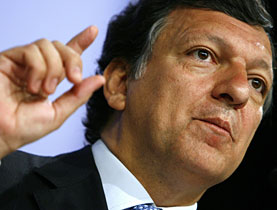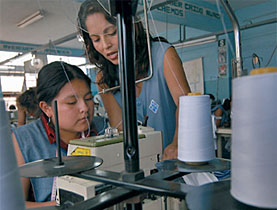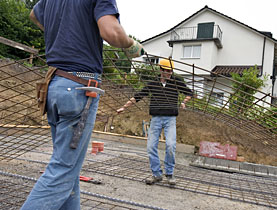Swiss to vote once on free movement agreement

The Swiss parliament has agreed on how it will present proposals to voters on modifying a key bilateral accord with the European Union.
The plan to prolong the free movement of people treaty as well as extending the accord to the EU’s two newest members, Romania and Bulgaria, will be presented to the electorate in a single package.
On Thursday, a large majority of the House of Representatives joined the Senate in approving a motion to combine the two issues.
The rightwing Swiss People’s Party, which favours lengthening the treaty duration but is opposed to extending the accord to Bulgaria and Romania, wanted the issues to be put to two separate votes.
People’s Party senator Maximilian Reimann denounced what he called a “political and legal decision that deprived citizens of their right to vote on two different issues”.
A majority of centre-right Radicals also favoured two votes, warning that citizens did not like proposals that put different issues into one package.
The government backed the two-vote solution, confirming a promise it made in 2000, even though it wants to see both issues approved.
But Justice Minister Eveline Widmer-Schlumpf told the Senate that the main points were the continuation and extension of the treaty.
“The agreement is important for the country, it’s important for the economy,” she added.
The centre-right Christian Democrats and politicians on the left were in favour of a single vote, saying that Bulgaria and Romania were part of one indivisible entity, the EU.
Radical senator Dick Marty said that parliament had chosen to take a political risk, but added that voters would get to have their say every time a new member joined the EU. Croatia is expected to join in 2010 and Serbia at a later date.
Territorial integrity
The agreement on the free movement of people has been in force with the 15 “old” EU countries since 2002.
Voters agreed in 2004 to extend the right to the ten new member states.
The agreement lasts until 2009. The EU will prolong it automatically, but in Switzerland continuation is subject to a referendum, which should be held by next May at the latest.
The EU has repeated on a number of occasions that it would not allow its members to be treated differently, but did not officially react on Thursday. The president of the European Commission, José Manuel Barroso, said last week in Bern that he hoped voters would respect the EU’s territorial integrity.
A refusal to extend the free movement accord to Romania and Bulgaria would lead to a certain number of problems, the EU warned last month.
The Slovenian presidency of the EU warned that the accord would not be prolonged if the Swiss refused the extension.
swissinfo with agencies
Voters in 1992 narrowly rejected joining the European Economic Area treaty, a halfway house to EU membership.
Instead Switzerland and the EU concluded 16 bilateral accords, which came into force in 2002 (extended in 2006) and 2005 respectively. They mainly cover trade and labour as well as asylum, customs and tax issues.
Under the terms of the first package of bilateral treaties with Brussels, Switzerland can review the labour deal by mid-May 2009. Refusal to continue the deal would result in the whole set of accords being suspended.
Negotiations are underway on an electricity agreement. Switzerland also aims at concluding a free-trade accord on agriculture.

In compliance with the JTI standards
More: SWI swissinfo.ch certified by the Journalism Trust Initiative



You can find an overview of ongoing debates with our journalists here. Please join us!
If you want to start a conversation about a topic raised in this article or want to report factual errors, email us at english@swissinfo.ch.